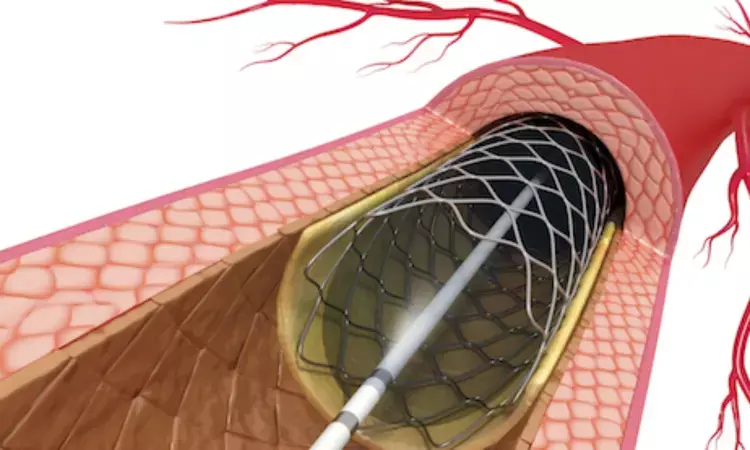- Home
- Medical news & Guidelines
- Anesthesiology
- Cardiology and CTVS
- Critical Care
- Dentistry
- Dermatology
- Diabetes and Endocrinology
- ENT
- Gastroenterology
- Medicine
- Nephrology
- Neurology
- Obstretics-Gynaecology
- Oncology
- Ophthalmology
- Orthopaedics
- Pediatrics-Neonatology
- Psychiatry
- Pulmonology
- Radiology
- Surgery
- Urology
- Laboratory Medicine
- Diet
- Nursing
- Paramedical
- Physiotherapy
- Health news
- Fact Check
- Bone Health Fact Check
- Brain Health Fact Check
- Cancer Related Fact Check
- Child Care Fact Check
- Dental and oral health fact check
- Diabetes and metabolic health fact check
- Diet and Nutrition Fact Check
- Eye and ENT Care Fact Check
- Fitness fact check
- Gut health fact check
- Heart health fact check
- Kidney health fact check
- Medical education fact check
- Men's health fact check
- Respiratory fact check
- Skin and hair care fact check
- Vaccine and Immunization fact check
- Women's health fact check
- AYUSH
- State News
- Andaman and Nicobar Islands
- Andhra Pradesh
- Arunachal Pradesh
- Assam
- Bihar
- Chandigarh
- Chattisgarh
- Dadra and Nagar Haveli
- Daman and Diu
- Delhi
- Goa
- Gujarat
- Haryana
- Himachal Pradesh
- Jammu & Kashmir
- Jharkhand
- Karnataka
- Kerala
- Ladakh
- Lakshadweep
- Madhya Pradesh
- Maharashtra
- Manipur
- Meghalaya
- Mizoram
- Nagaland
- Odisha
- Puducherry
- Punjab
- Rajasthan
- Sikkim
- Tamil Nadu
- Telangana
- Tripura
- Uttar Pradesh
- Uttrakhand
- West Bengal
- Medical Education
- Industry
PCI has no additional benefit over optimal medical therapy in ischemic cardiomyopathy: NEJM

UK: Coronary revascularization with PCI did not provide any additional benefit among patients with severe ischemic left ventricular systolic dysfunction who received optimal medical therapy, a recent study in the New England Journal of Medicine has shown.
The study showed that revascularization by PCI did not result in a lower incidence of hospitalization for heart failure or death from any cause beyond guideline-directed medical therapy (GDMT) in the study population. The findings from the REVIVED-BCIS2 were also presented during a Hot Line session at the European Society of Cardiology (ESC) Congress 2022.
Divaka Perera and colleagues conducted the study in order to determine whether revascularization by the percutaneous coronary intervention (PCI) improves event-free survival and left ventricular function in patients with severe ischemic left ventricular systolic dysfunction versus optimal medical therapy (i.e., individually adjusted pharmacologic and device therapy for heart failure) alone.
The study included 700 patients with a left ventricular ejection fraction of 35% or less, extensive coronary artery disease amenable to PCI, and demonstrable myocardial viability. They were randomly assigned to a strategy of either PCI plus optimal medical therapy (PCI group; n=347) or optimal medical therapy alone (optimal-medical-therapy group; n=353).
Death from any cause or hospitalization for heart failure was the primary composite outcome. Major secondary outcomes were left ventricular ejection fraction at 6 and 12 months and quality-of-life scores.
Based on the study, the researchers found the following:
- Over a median of 41 months, a primary-outcome event occurred in 37.2% of patients in the PCI group and in 38.0% of patients in the optimal-medical-therapy group (hazard ratio, 0.99).
- The left ventricular ejection fraction was similar in the two groups at 6 months (mean difference, −1.6 percentage points) and at 12 months (mean difference, 0.9 percentage points).
- Quality-of-life scores at 6 and 12 months appeared to favor the PCI group, but the difference diminished at 24 months.
The researchers conclude, "We did not observe a lower incidence of death from any cause or hospitalization for heart failure from revascularization by PCI among patients with severe ischemic left ventricular systolic dysfunction who received optimal medical therapy."
"PCI should not be undertaken to treat and improve left ventricular dysfunction," they wrote.
Reference:
Perera D, Clayton T, O'Kane PD, et al. Percutaneous revascularization for ischemic left ventricular dysfunction. N Engl J Med. 2022;Epub ahead of print.
Dr Kamal Kant Kohli-MBBS, DTCD- a chest specialist with more than 30 years of practice and a flair for writing clinical articles, Dr Kamal Kant Kohli joined Medical Dialogues as a Chief Editor of Medical News. Besides writing articles, as an editor, he proofreads and verifies all the medical content published on Medical Dialogues including those coming from journals, studies,medical conferences,guidelines etc. Email: drkohli@medicaldialogues.in. Contact no. 011-43720751


